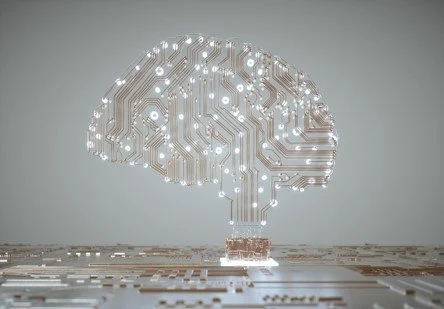Neurodivergence is Not a Diagnostic Label
Note to Reader: This article shares what is meant by neurodiversity and cognitive and emotional processing traits and explains how ND Perspective supports our adult ND community across home and work through training, webinars and community support.
Topic: Neurodiversity, Medical Diagnosis, Cognitive Processing, Emotional Processing, Strategies, Supports, Home, Work, ND Community.
At ND Perspective our training and supports are tailored to people who are recognised or self-identify in relation to dyslexia, dyspraxia, ADHD and autism neuro-types. However, we discuss different ways of thinking a little differently to most neurodiversity training and service providers.
At ND Perspective the training and supports provided are more often discussed in relation to how people think, process information and feel, rather than the diagnostic categories used to describe these differences.
In this article I share what is meant by neurodiversity and cognitive and emotional processing traits and explain how ND Perspective supports our adult neurodivergent community across home and work through training, webinars, and community support.
What is Neurodiversity?
Neurodiversity is a term coined by sociologist Judy Singer in the late 90's and refers to the natural variation of cognitive processing seen across the human population. As such, a person who thinks differently to the majority is regarded as 'diverging' from the ‘typical’. Hence the term neurodivergence is used or ND for short.
Medical understanding of different thinkers:
The medical understanding of neurodivergence refers to how people are currently categorised in relation to their thinking and behaviour (the diagnosis category constructed by doctors).
The difficulty with our current healthcare system, is that natural variations in cognitive and emotional processing are compared to a fictitious idea of there being one ideal way to be human that we should all aspire to.
Medicine considers one ideal way that people should think and behave.
Medicine considers one ideal physical form which everyone is expected to achieve.
However, at ND Perspective we recognise that there are many ways to think, interact, and physically function that surpass this one medical conception of 'normal'.
Diagnostic labels often do not explain individual need:
It is currently recognised that people who receive developmental diagnoses such as dyslexia, dyspraxia, ADHD and autism show common processing traits across the different diagnostic categories. For instance, someone who is ADHD may have some similar cognitive and emotional processing traits to dyslexic or autistic thinkers. Furthermore, it is recognised that there is also great variation across people within a single diagnostic category. For instance two people who share a diagnosis of autism may present very differently and have different cognitive and emotional processing needs to each other.
The similarities and differences seen among different diagnostic labels mean that saying someone is autistic or that someone is ADHD does not share a good enough insight into that person's strengths and challenges to support that person appropriately from stating their diagnostic label alone.
This is why understanding neuro-traits and neuro-profiles are incredibly important when supporting our ND community.
This is why at ND Perspective we like to move away away from diagnostic labels and consider cognitive and emotional processing traits instead!
How the concept of neurodiversity better informs people’s support needs:
Imagine a world where people are not grouped into diagnostic categories but are valued for their unique individual neuro profile - Not only would this new way of viewing different people reduce unconscious biases and negative ideas associated with the current diagnostic categories, but it would also enable each and every person to be valued for their strengths and challenges and supported accordingly.
There would be no more...you meet most but not all of X diagnostic criteria so we won't help you
There would be no more...this is how to support X diagnosis gross generalisations.
A recognition of neuro traits that span across the current diagnostic categories would enable people to be supported according to their specific needs, rather than generic supports associated with diagnostic labels.
How we support people at ND Perspective:
At ND perspective we focus on supporting people in relation to their cognitive and emotional processing traits that span across diagnostic categories.
Examples of cognitive traits include:
Fluctuating attention (inattention, hyperfocus, monotropic thinking)
Executive functioning (organising, planning, systemizing)
Fine and gross motor (coordination of small and large movements)
Motor planning (planning/ordering of physical movements)
Sensory processing differences (processing of the physical sensory environment)
Speaking (forming words and sentences)
Social communication (sharing ideas and understanding other people's perspectives)
Reading (de-coding written communication)
Writing (communicating in written form)
Memory (short and long term memory)
Examples of common ND emotional processing traits include...
Delayed processing of emotion
Rejection sensitivity
Sensory and cognitive overwhelm
Inertia (challenge starting or switching tasks)
Masking (adapting and challenging natural behaviour to meet social expectations)
Fawning (a reactive response to threat where someone makes themselves appear more vulnerable so not to be physically or emotionally hurt by others).
(Please note that the above examples are not an exhaustive list of cognitive and emotional processing traits).
At ND Perspective we only refer to diagnostic labels as a way of teaching people about cognitive and emotional processing traits. Each of our webinars and training sessions support people who are both medically recognised, or self-identify as ND, providing an inclusive service to everyone who would like to learn more about ND thinking and support needs.
At ND Perspective neurodivergence is celebrated. Our aim is for each community member who attends our training, webinars or community hubs, learns a neuro-affirmative understanding of themselves, their neuro-profile and the types of supports that enhance their lives across home and work. This means that the supports and strategies shared at ND Perspective celebrate and encourage ND strengths and focus on improving wellbeing, organisation and overall functioning (not changing people to act like the majority neuro-type).
Supporting and Celebrating our Neurodivergent Community,
Jess x x
